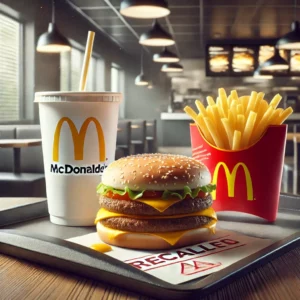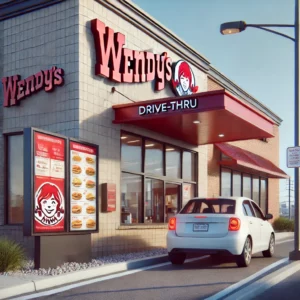Sandwich Giant’s Marketing Practices Under Fire in New York Courts
In an era of heightened consumer awareness and rising food costs, a new legal battle has emerged, challenging the authenticity of fast-food advertising. The latest lawsuit targeting Subway restaurants alleges significant discrepancies between advertised and actual meat portions, highlighting growing tensions between marketing practices and consumer expectations. The case adds to a pattern of legal scrutiny facing major fast-food chains over their advertising practices.
5 Key Points
- The lawsuit claims Subway’s ads show triple the meat served.
- The customer paid $7.61 for an allegedly misrepresented Steak & Cheese sandwich.
- The case seeks damages for New York customers from the past three years.
- Similar lawsuits against other chains were previously dismissed.
- Roark Capital recently acquired Subway in April 2024.
Photo Evidence Reveals Stark Contrast in Advertised vs. Served Portions
The lawsuit in a federal court in Brooklyn starkly contrasts Subway’s advertising imagery and actual product delivery. Photographic evidence submitted in the complaint shows what plaintiffs claim is a significant disparity between promotional materials and real-world portions. The legal filing specifically targets the Steak & Cheese sandwich, where advertising depicts meat stacked to match the height of the bread. According to the lawsuit, these representations dramatically overstate the meat content by approximately 200%. The disparity between marketing materials and served products raises questions about industry-wide advertising practices and consumer expectations.
Inflation Concerns Amplify Impact of Alleged Portion Deception
The timing of this lawsuit resonates particularly strongly against the backdrop of current economic conditions. Consumer advocates argue that such marketing practices become especially problematic during periods of high inflation and rising food costs. The complaint emphasizes how these alleged misrepresentations potentially impact lower-income consumers who carefully budget their food expenses. The legal action seeks to address not just the immediate issue of portion sizes but broader concerns about truth in advertising during challenging economic times. The case highlights the increasing scrutiny of fast-food marketing practices in an era of consumer financial strain.
Previous Fast Food Cases Set Stage for Subway’s Legal Battle
This latest legal challenge against Subway enters a complex landscape of fast-food litigation. Similar lawsuits filed against major chains, including McDonald’s, Wendy’s, and Taco Bell, were dismissed in the same court last year. The plaintiff’s attorney, Anthony Russo, characterizes the Subway case as “an egregious example” of problematic advertising practices that warrant legal intervention. The legal proceedings coincide with Subway’s recent acquisition by Atlanta-based Roark Capital, adding another layer of corporate scrutiny. These developments suggest a potential shift in how courts view fast-food advertising claims.
Footlong Controversy to Meat Discrepancy: Subway’s Legal Pattern
Subway is no stranger to controversies surrounding portion sizes and advertising claims. The chain defended itself for over four years against allegations that its “footlong” sandwiches failed to meet length specifications. That case, ultimately dismissed in 2017, established a precedent for how courts view fast-food measurement claims. The current lawsuit represents a new chapter in the ongoing debate about food advertising accuracy and consumer protection. This pattern of litigation reflects broader industry challenges in balancing marketing appeal with accurate product representation.
FAQ
Q: What is the central claim in the lawsuit?
A: The lawsuit alleges that Subway’s advertising shows three times more meat than is served in sandwiches.
Q: Who can potentially benefit from this lawsuit?
A: New York residents who purchased Subway sandwiches in the past three years.
Q: How much did the plaintiff pay for the sandwich in question?
A: The plaintiff paid $7.61 for a Steak & Cheese sandwich.
Q: Are other fast-food chains facing similar lawsuits?
A: Yes, Burger King faces a similar lawsuit in Miami, while others against McDonald’s, Wendy’s, and Taco Bell were dismissed.
Q: Who owns Subway currently?
A: Subway was acquired by Roark Capital, an Atlanta-based private equity firm, in April 2024.
Citations
Stempel, J. (2024, October 28). Subway sandwiches are short on meat, lawsuit claims. Reuters via MSN. https://www.msn.com/en-us/money/companies/subway-sandwiches-are-short-on-meat-lawsuit-claims/ar-AA1t5oAc







